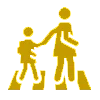Hawaii Local Accident Resources
Hawaii Local Accident Resources
Was a Loved One of Yours Involved in a Fatal Traffic Accident in Hawaii Today?
If someone you care about was recently in a fatal car accident anywhere across Hawaii, you are likely going through a tough time right now. You are likely feeling a lot of strong emotions because you lost someone close to you suddenly, and when this happens due to someone else’s negligence, such as a reckless driver’s actions, it makes it particularly difficult to cope.
Besides dealing with the emotional pain of your loved one’s accident, you may be facing serious financial strain as well. If your loved one was the breadwinner in your family, you may be dealing with lost income and bills that are falling behind. You are likely also grappling with medical bills, property damage, lost wages of your own, and more.
If you think your loved one died due to someone else’s negligence, we strongly urge you to reach out to a Hawaii wrongful death lawyer as soon as possible. While nothing can change what’s happened, you could be entitled to significant financial compensation that could help you avoid financial turmoil and gain a sense of justice and closure.
In the meantime, there are some resources available to help you right now during this challenging period, and Local Accident Reports is committed to bringing you the most up-to-date information on resources in your area that you can reach out for help.
If You Are Experiencing a Loss of Income
If you have lost income due to your loved one’s untimely death, there are several resources that may be able to help. Depending on the circumstances of your unique situation, various agencies exist to offer support to those who have experienced the loss of a loved one. Read on to find out more information about getting help with financial challenges after losing someone in a fatal traffic accident in Hawaii.
- Survivor Benefits through Social Security Administration – When a family member passes away after they have been working and paying into Social Security for a long time, their surviving loved ones may be able to collect survivor benefits. If you are the surviving spouse, child, or parent of an individual who paid taxes to the Social Security Administration, you may be eligible for survivor benefits. For more information, please refer to this PDF on the SSA website: How Social Security Can Help You When a Family Member Dies.
- Department of Human Services Hawaii: DHS in Hawaii may be able to offer help and referrals to other valuable financial resources in the case of a wrongful death. Whether or not DHS can assist you financially after the passing of your family member may depend on certain factors, such as the nature of their passing, your current financial situation, and more.
- Hawaii Crime Victims Compensation Commission: The Crime Victims Compensation Commission in Hawaii provides financial assistance to those victimized by violent crimes, including some wrongful deaths. This program can help cover the costs related to medical care, funeral expenses, counseling, and other expenses that may stem from the untimely passing of your loved one. This may be particularly relevant if your loved one died during the commission of a crime, such as driving while intoxicated.
Help with Obtaining an Official Police Report
After losing a loved one due to a fatal car crash in Hawaii, you will need to obtain a copy of the police report related to the accident, especially if you are considering filing a lawsuit against any negligent parties who may have contributed to the cause of your family member’s collision.
The police report is a vital piece of evidence in establishing that your loved one’s crash was caused by negligence. If you need a police report, call the local police department wherever the accident happened and request a copy. If you are having trouble getting a copy, Local Accident Reports can help. Call us today for free help obtaining your police report.
Resources for Emotional Support
In Hawaii, there are various support groups, therapy organizations, and counseling services available for those suffering through grief due to the untimely loss of a loved one.
Grief Counseling Services: Several grief counseling services are available in Hawaii that work on helping people and their families move through the grieving process. These may include group therapy, individual counseling, or workshops that focus on healing and coping strategies. Some of these organizations include Hawaii Counseling and Education Center, Hospice Hawaii, and the Hawaii State Department of Health.
Mental Health Clinics and Counseling Centers: Multiple counseling centers and mental health clinics across the Island offer therapy and more for those facing grief and loss. These facilities may offer individual and family therapy, support groups, and specified grief services. Some examples include the Kapiolani Medical Center for Women & Children and the Child and Family Service in Honolulu.
Teletherapy and Online Services: With the evolution of technology, teletherapy services and online therapy have become more and more accessible. Bereaved family members in Hawaii are able to access virtual support groups, counseling sessions, and more from the comfort of home through platforms such as Talkspace, BetterHelp, and local services that may offer telehealth options.
Community Support Groups: Community-based support groups for people who have wrongfully lost someone they love may be available. These groups provide a secure environment for offering mutual support, sharing experiences, and connecting with those who may be going through similar situations. Local hospitals, community centers, and nonprofits may facilitate or host support groups of this nature.
In addition to support groups, therapy organizations, and counseling services in Hawaii, individuals who have experienced a wrongful death in their family can also benefit from holistic healing practices such as meditation, yoga, and art therapy. These resources aim to provide a safe space for individuals to express their emotions, process their grief, and navigate the complex emotions that come with the loss of a loved one due to tragic circumstances. By considering a variety of emotional support resources, those affected by wrongful death can find comfort, healing, and a sense of community during their journey towards healing and recovery.
Information Regarding Car Insurance and Vehicle Damage
Hawaii is listed as a no-fault state by the Department of Commerce and Consumer Affairs, meaning that an insurance company will pay for damages to the limit of the personal injury protection (PIP) benefits program. The Hawaii DMV requires that minimum motor vehicle policies must include:
- $20,000 for injury of one victim
- $40,000 for injury of multiple victims
- $10,000 towards damage to property
The Hawaii Insurance Division (through the Department of Commerce and Consumer Affairs) is an excellent resource for information about policies and benefits.
If Your Loved One Was the Victim of an Accident Caused by DUI
Drunk driving is a serious offense that can cause significant harm to innocent victims, their families, and friends. In Hawaii, the Department of Motor Vehicles (DMV) has set legal limits for blood alcohol concentration (BAC) at 0.08% for adults aged 21 and older, and 0.02% for individuals under 21. Refusing to take a BAC test can lead to harsh consequences, including license suspension or a jail sentence of 10 to 30 days, depending on prior offenses. The Hawaii DMV categorizes DUI and DWI offenses as OVUII (operating a vehicle while under the influence of intoxicants). Currently, Hawaii ranks 29th among states with significant issues related to DUI accidents.
If you, a loved one, or a friend have been victimized by a DUI incident and require more in-depth support, visit the following links:
- Hawaii MADD – Mothers Against Drunk Driving seeks to provide ongoing support for victims of drunk driving incidents in the State of Hawaii.
- HPPUD – The Hawaii Partnership to Prevent Underage Drinking is a foundation that seeks to prevent Hawaiian juveniles from becoming victims of DUI accidents. Resources include the “Under 21 No Can” seminars and coalitions in various counties, including Maui and Honolulu.
Charities Supported by Local Accident Reports
Here at Local Accident Reports, we support several impactful charities throughout the country, including in Hawaii. These compassionate professionals and volunteers touch the lives of victims dealing with the aftermath of life-changing accidents.
- Arrive Alive Tour – The Arrive Alive Tour is a program that works to reveal the dangers of distracted and intoxicated driving, especially among young people. It usually comes in the form of a simulation or mobile educational experience that travels to schools, community events, and universities.
- Eluna Network: This network offers a variety of networks and services aimed at helping children and families cope with the unexpected loss of loved ones.
- The Healing Tree: The Healing Tree Nonprofit provides resources that focus on healing from trauma, including those that educate and empower individuals.
- Hospice of Kona: After the passing of someone you love, Hospice of Kona offers grief support services to help families and caregivers cope with loss. These services may entail counseling, support groups, and resources for coping with grief.
- Kōkua Mau: Kōkua Mau is a nonprofit that provides palliative care and quality end-of-life-care throughout Hawaii.
- The Compassionate Friends – Compassionate Friends is a national support group that provides support to families who have endured the death of a child, regardless of the age of the child or the nature of death. This organization provides companionship, comfort, and support to families who are trying to navigate the arduous journey of grief and loss.
- National Foundation for Teen Safe Driving – NFTSD hosts activities and events aimed at preventing traffic accidents involving teens, especially those that end in injury or death.
- Grief Resource Network – GSN offers support groups, bereavement services, and education for members of the community who may be coping with the death of a spouse or child.
- Stop Distractions – This homegrown non-profit works to stop distracted driving crashes.
Frequently Asked Questions About Catastrophic and Fatal Accidents in Hawaii
What constitutes wrongful death in Hawaii?
Wrongful death in Hawaii is defined as any fatality that happens due to a wrongful act, negligence, or misconduct of another individual or entity.
Examples of situations that may typically lead to wrongful death include negligently caused car accidents, a patient dying due to medical errors, deadly workplace accidents that happen under unsafe conditions, or fatalities that happen due to defective products.
It is important to remember that wrongful death regulations and laws often vary by jurisdiction, so you should confide in a skilled lawyer who is experienced in wrongful death cases in order to understand your rights and legal options at this time fully.
What evidence is needed to prove wrongful death?
Establishing negligence in a wrongful death case in Hawaii involves several key elements:
- Breach of duty: It must be demonstrated that the party responsible for the death had a legal obligation to care for the victim and that this duty was breached, directly or indirectly, leading to the victim’s passing.
- Negligence/Wrongful Act: The breach occurred as a result of negligence or a wrongful act by the responsible party.
- Causation: The death was directly caused by the breach of duty.
- Damages: The surviving loved ones of the deceased suffered various damages, such as emotional distress and financial burdens, as a result of the wrongful death.
Who can file a wrongful death claim in Hawaii?
In Hawaii, a wrongful death claim can typically be filed by the personal representative of the deceased person’s estate on behalf of the surviving family members or beneficiaries. The personal representative is usually appointed in the deceased person’s will or by the court if there is no will.
The surviving family members who may be eligible to receive compensation from a wrongful death claim can include the deceased person’s spouse, children, parents, or other dependents. If there is no personal representative appointed, the court may appoint one to bring forth the wrongful death claim on behalf of the deceased person’s estate and beneficiaries.
It’s important to consult with a legal professional who is well-versed in wrongful death laws in Hawaii to understand the specific eligibility criteria and process for filing a claim.
What damages are available in a wrongful death claim in Hawaii?
Under Hawaii law, various types of damages may be available to compensate the surviving family members for their losses. These damages can be categorized into economic and non-economic damages:
Economic Damages
- Medical expenses incurred for the deceased person’s final injury or illness.
- Funeral and burial expenses.
- Loss of financial support that the deceased would have provided to the family.
- Loss of benefits, such as insurance or retirement benefits, due to the death.
Non-Economic Damages
- Pain and suffering experienced by the deceased before their passing.
- Loss of companionship, guidance, and consortium for the surviving family members.
- Emotional distress and mental anguish resulting from the loss of a loved one.
- Loss of care, protection, and nurturing that the deceased would have provided to their family.
These damages aim to provide compensation for both the tangible financial losses and the intangible emotional impact experienced by the surviving family members due to the wrongful death of their loved one.
What is the statute of limitations for a Hawaii wrongful death claim?
How long does it take to resolve a wrongful death claim in Hawaii?
How much time it takes to resolve a wrongful death case in the Aloha State depends on various factors. Some of these include how complex the case is, how willing each party is to negotiate a fair settlement and the docket schedule of the court. In general, resolving a wrongful death claim in Hawaii generally involves numerous stages, including:
- Investigation: The circumstances of the death need to be thoroughly investigated and any pertinent evidence about the details of the situation that led to the death needs to be gathered to prove that it was wrongful.
- Filing the Lawsuit: Once an investigation is completed, you will file the lawsuit against any responsible parties involved in the death of your family member.
- Discovery: This is the part of the case where information and evidence is exchanged by both parties involved.
- Negotiation/Settlement: Following discovery, parties may take part in settlement negotiations in an attempt to come to a resolution without going to trial. If a settlement can be reached, the case may be able to be resolved quickly.
- Preparing for Trial: If the case is unable to be settled outside of court, it may go to trial. Getting ready to go to trial entails identifying witnesses, building legal arguments, and getting exhibits and other evidence ready for court.
- Trial: The trial generally involves presenting evidence and arguments to a jury and judge who can then determine damages and liability.
- Appeals: If any party involved is dissatisfied with the result of the trial, they may be able to appeal the decision to a higher court.
Do you need a lawyer to file a wrongful death claim in Hawaii?
While not legally required, it is highly advisable to hire a skilled attorney if you wish to file a wrongful death claim. A skilled attorney who specializes in wrongful death claims will provide invaluable guidance and support throughout the legal process. They can help you navigate the complexities of the legal system, gather evidence to support your claim, negotiate with insurance companies or opposing parties, and ensure that your rights are protected.
Additionally, an experienced attorney can assess the value of your claim, advise you on the potential outcomes of your case, and work towards securing fair compensation for your losses. By having a knowledgeable attorney on your side, you can increase your chances of a successful outcome in your wrongful death claim and focus on healing and rebuilding your life during this difficult time.
What is the difference between personal injury and wrongful death?
Personal injury and wrongful death are both legal claims that arise from harm caused by someone else’s negligence or intentional actions, but the key difference lies in the outcome of the harm.
Personal injury claims are filed by individuals who have been injured physically, emotionally, or mentally due to the actions of another party, seeking compensation for medical expenses, lost wages, pain and suffering, and other damages.
On the other hand, wrongful death claims are filed on behalf of the surviving family members of an individual who has died as a result of someone else’s negligence or misconduct, seeking compensation for funeral expenses, loss of financial support, loss of companionship, and other damages resulting from the death.
While personal injury claims focus on the harm suffered by the injured individual, wrongful death claims aim to provide compensation and justice to the deceased person’s loved ones for the loss they have endured.
Auto Accident Statistics in Hawaii
Unfortunately, auto accidents are a significant cause of injury and death in Hawaii. In recent years, data from the Hawaii Department of Transportation (HDOT) has shown a troubling trend in fatal crashes across the islands. In 2022 alone, over 100 people lost their lives in motor vehicle accidents. These fatalities are often attributed to common factors such as speeding, impaired driving, and distracted driving.
Oahu, the most populous island, typically reports the highest number of crashes, but other islands like Maui and the Big Island also experience tragic accidents. Many of these accidents occur on highways and rural roads, where speed limits are higher and emergency response times can be longer. Pedestrian and motorcycle fatalities are also a significant concern, as Hawaii’s beautiful weather and scenic routes encourage outdoor activities that sometimes lead to fatal accidents.
Understanding these statistics highlights the importance of safe driving and the need for legal support when accidents turn fatal. If you’ve lost a loved one in an auto accident, pursuing legal action may provide compensation for medical expenses, funeral costs, and emotional suffering. By working with an experienced attorney, you can ensure that your rights are protected during this difficult time.
If you need help accessing resources, reach out to Local Accident Reports today.
Hawaii Grief & Trauma Resources
Resources by State
- Alabama
- Alaska
- Arizona
- Arkansas
- California
- Colorado
- Connecticut
- Delaware
- Florida
- Georgia
- Hawaii
- Idaho
- Illinois
- Indiana
- Iowa
- Kansas
- Kentucky
- Louisiana
- Maine
- Maryland
- Massachusetts
- Michigan
- Minnesota
- Mississippi
- Missouri
- Montana
- Nebraska
- Nevada
- New Hampshire
- New Jersey
- New Mexico
- New York
- North Carolina
- North Dakota
- Ohio
- Oklahoma
- Oregon
- Pennsylvania
- Rhode Island
- South Carolina
- South Dakota
- Tennessee
- Texas
- Utah
- Vermont
- Virginia
- Washington
- West Virginia
- Wisconsin
- Wyoming
Motor Vehicle Crash Deaths by Road User Type and State

Car Occupants
37

Pickup and SUV Occupants
22

Large Truck Occupants
00

Motorcyclists
25

Pedestrians
14







